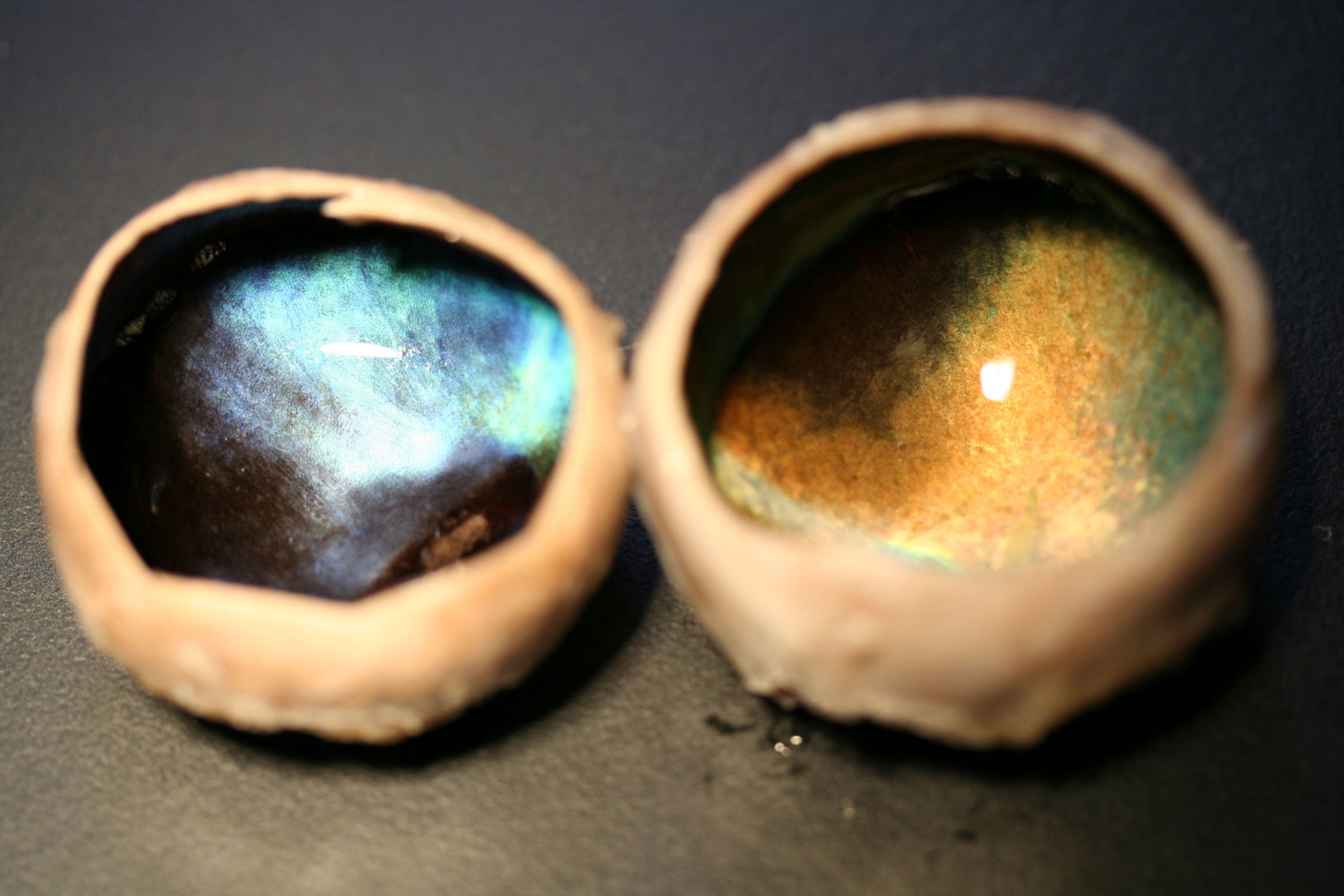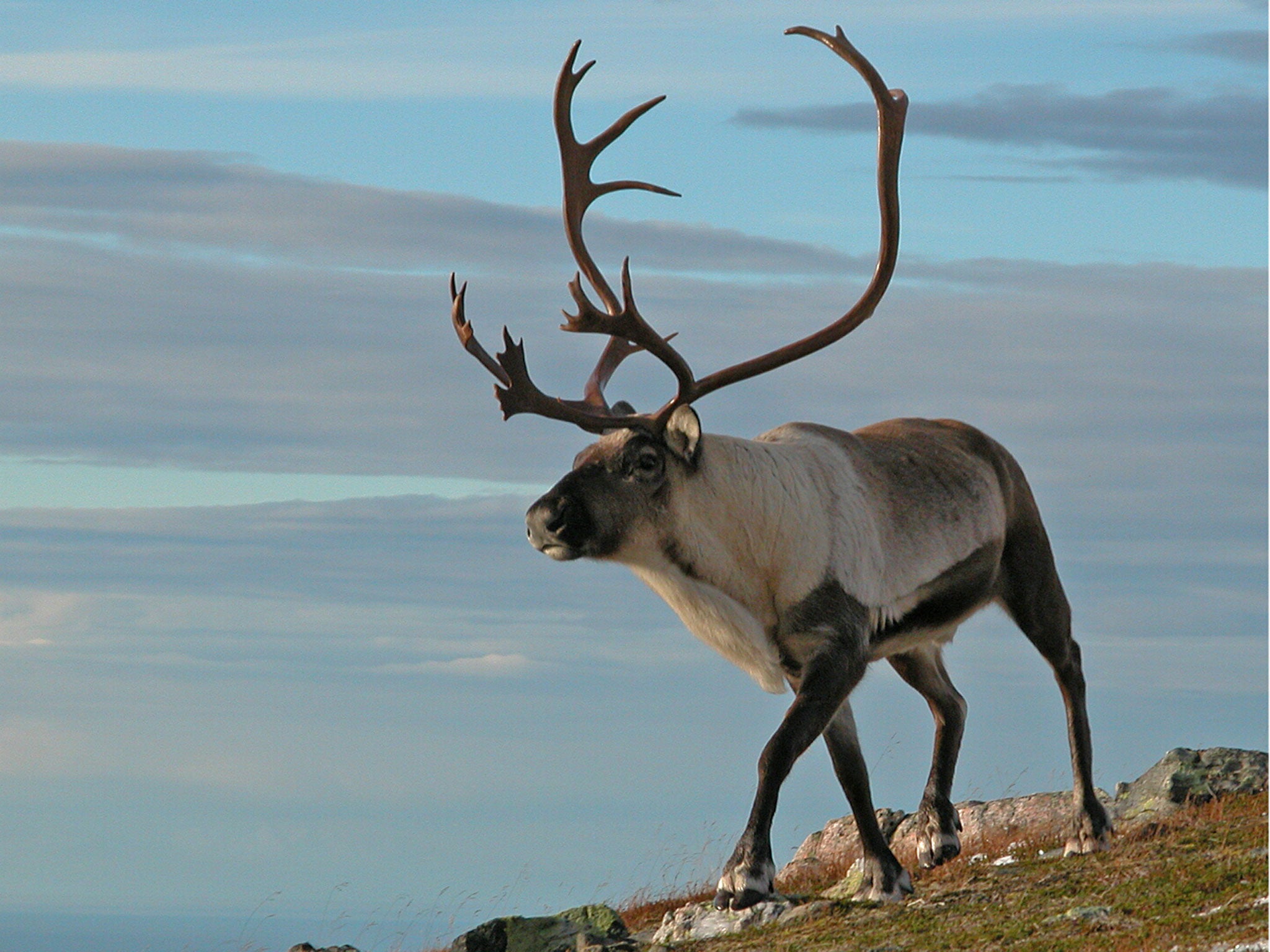British scientists discover reindeer eyes change colour from gold to blue over course of the seasons
It is the first time a mammal’s eyes have ever been shown to change in this way

Your support helps us to tell the story
From reproductive rights to climate change to Big Tech, The Independent is on the ground when the story is developing. Whether it's investigating the financials of Elon Musk's pro-Trump PAC or producing our latest documentary, 'The A Word', which shines a light on the American women fighting for reproductive rights, we know how important it is to parse out the facts from the messaging.
At such a critical moment in US history, we need reporters on the ground. Your donation allows us to keep sending journalists to speak to both sides of the story.
The Independent is trusted by Americans across the entire political spectrum. And unlike many other quality news outlets, we choose not to lock Americans out of our reporting and analysis with paywalls. We believe quality journalism should be available to everyone, paid for by those who can afford it.
Your support makes all the difference.Scientists have discovered that reindeer eyes change colour from gold to blue over the course of the year – the first time this has ever been shown to happen in mammals.
A British-funded study has revealed that the animals are uniquely adapted to Arctic winters, which experience continuous daylight in summer and continuous darkness in winter.
Like many other mammals, during the bright summers reindeer eyes reflect back most light through the retina – so they appear gold.
A kind of enhanced night vision kicks in through winter, however, when a layer of tissue behind the retina becomes less reflective and appears blue.
This increases the sensitivity of the reindeer eye to limited winter light – and is a vital tool in helping them survive the challenging Arctic conditions.
“This gives them an advantage when it comes to spotting predators, which could save their lives,” said lead researcher Professor Glen Jeffery.
“This is the first time a colour change of this kind has been shown in mammals,” he said. “By changing the colour of the TL in the eye reindeer have flexibility to cope better with the extreme differences between light levels in their habitat between seasons.”
The study was conducted by Professor Jeffery and his colleagues at University College London, working in tandem with the University of Tromsø in Norway.
They suggested that the colour change may be caused by pressure within the eyes. In winter the reindeers’ pupils exist in a permanent state of dilation, which prevents fluid in the eyeball from draining naturally.
The pressure compresses the tissue behind the retina, they said, reducing the space between collagen in the tissue and therefore reflecting the shorter wavelengths of the blue light common in Arctic winters.

Previous work from Professor Jeffery and Norwegian colleagues from Tromsø had shown that Arctic reindeer eyes can also see ultraviolet, which is abundant in Arctic light but invisible to humans, and that they use this to find food and see predators.
The most recent study, published yesterday, was funded by the Biotechnology and Biological Sciences Research Council – one of the seven members of the Government-backed Research Councils UK group.

Join our commenting forum
Join thought-provoking conversations, follow other Independent readers and see their replies
Comments